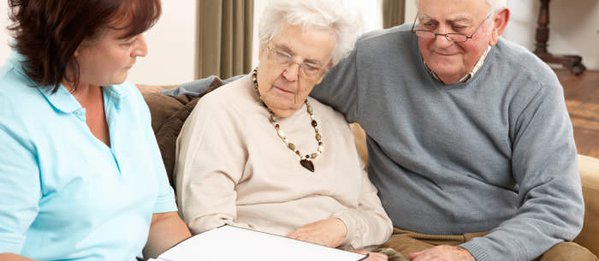Most elders would prefer to stay in their own homes, where they know their neighbors and can associate memories with each piece of furniture and object around them, rather than move to an institution as they age.
Things that can make “aging in place” — the current term for staying in one’s own home as one ages — problematic are tasks such as cooking, cleaning, toileting, shopping, doing laundry, and driving, as well as falls, which for frail elders could initiate a downward spiral.
Support Systems
- Help could come from family members, friends, or neighbors, who take care of the specific thing the elder has trouble with — such as doing laundry or shopping.
- Or, some elders turn to their religious community, as often there are volunteers willing to enable a senior to age in place.
- Another option is to call the local Agency on Aging (800- 677-1116) to see if there are programs that help elders age in place. In some areas, “villages” have been created, whereby local merchants have banded together to provide the services seniors need to stay there, and seniors who pay a fee can make just one phone call to arrange for the necessary help.
- Finally, in-home care can be hired to provide the extra help needed for the senior to be able to age in place. In some cases, expenses will be reimbursed by Medicare, but seniors will need to check with the home care agency to find out about this possibility.
Preventing Falls
- Certified Aging-in-Place SpecialistsYou can now hire a Certified Aging-in-Place Specialist — someone who can assess a home to determine how to make it as safe as possible for a senior, and who can then make the necessary repairs. These specialists have been trained to add a wide range of safety features that can enable an elderly person to live independently. They can be found on the internet at CAPS by clicking on the Education tab, scrolling down to Designations, then selecting Certified Aging-In-Place Specialists.
- Home Care AgenciesMost home care agency employees have received training in how to assess a senior’s home to determine what about it could pose a risk of falling. The senior would then have to make her own arrangements to have her home adapted.
- How to prevent falls
- Rearrange the furniture to create an unobstructed passageway into and around all rooms
- Make sure no rugs or carpets bunch up or have frayed edges that could be tripped on, and that all rugs and carpets are securely anchored to the floor.
- Install grab bars in the bathroom and railings in all stairwells
- Add lighting so that all stairs, exits and entrances are well lit and pose no hazard.
- Tape all cords to the wall.
- Warn seniors to only carry very small loads in their arms, as larger ones could cause them to lose their balance.
- Check footwear to see that the soles of shoes worn in the home don’t stick to the carpet and are not likely to cause falls.
- Reduce the number of medications the elder takes, as taking four or more can affect a person’s sense of balance.
New Technology Can Help Seniors
- Electronic devices are now available to help monitor whether or not a senior has taken his or her medication — and if not, to remind the senior — or to determine whether a senior has opened the refrigerator.
- Emergency buttons can be worn around the neck and pressed if a health or other emergency should occur, in which case a person will speak to the senior through the device, assess the situation, and call for appropriate help.
- Cameras can be installed to track a senior’s movements, allowing adult children to monitor the senior and be assured that he or she is functioning well.
- New devices are constantly being invented, and they can make an enormous difference in a senior’s ability to age in place.
With all of these options available, aging in place is an increasingly viable choice. Seniors and their loved ones need to assess whether this alternative is indeed best, the risk being that the senior may become too socially isolated despite being in familiar neighborhoods and homes.

 info@personalizedhomecare.com
info@personalizedhomecare.com
 916-979-4975
916-979-4975
